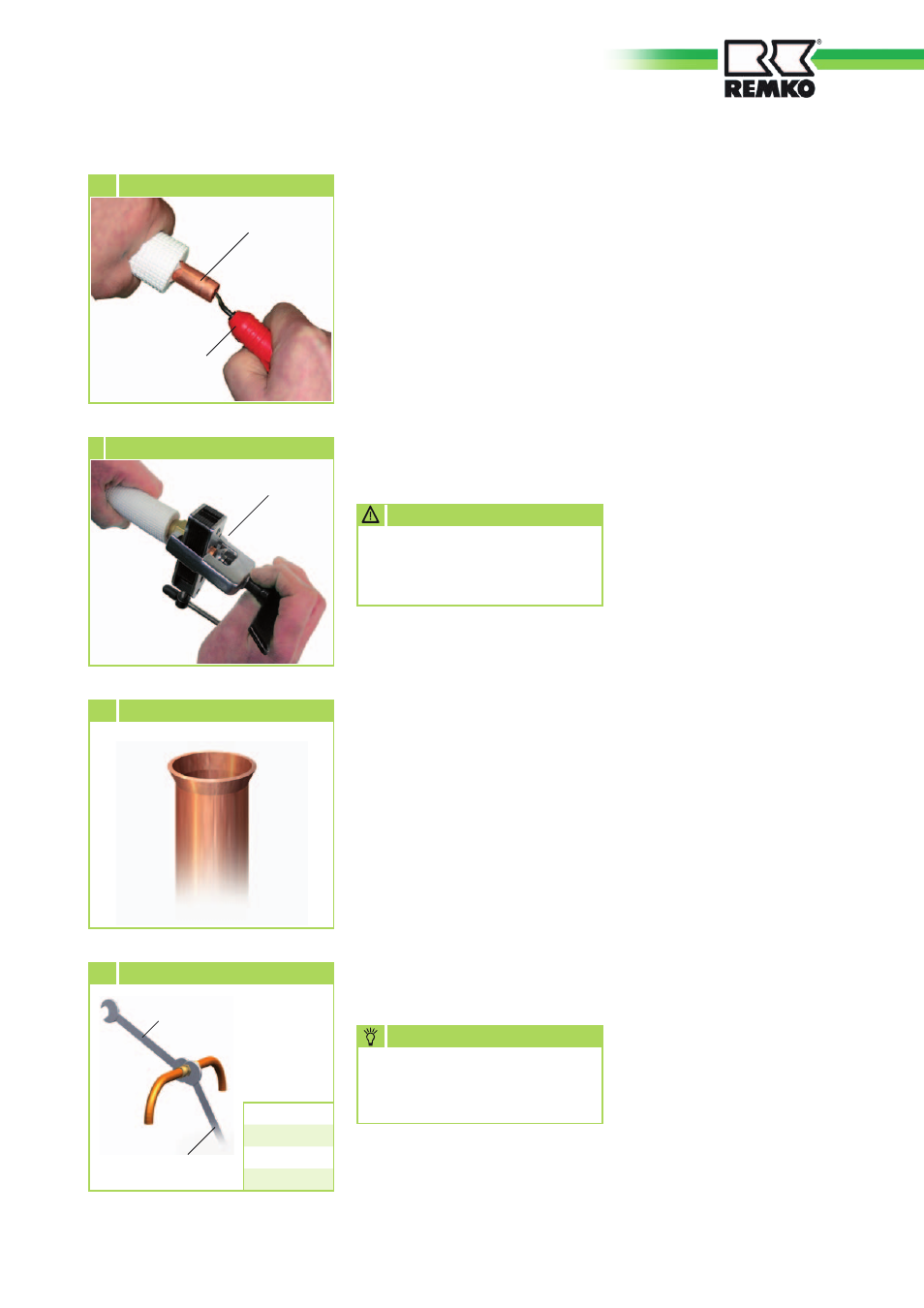Monitoring for leaks – REMKO ATY 261 DC User Manual
Page 25

Flanging tool
13 Flanging the refrigerant line
Refrigerant line
Deburrer
12 Deburring the refrigerant line
14 Correct flange shape
Tighten 1st Spanner
Counter
2nd Spanner
15 Tighten fittings
Tightening
torque:
“ 12 - 16 Nm
“ 28 - 32 Nm
“ 40 - 44 Nm
“ 64 - 68 Nm
Monitoring for leaks
Once all the connections have
been established, the pressure
gauge station is attached as
follows to the Schrader valve
(if fitted):
red = small valve
= injection pressure
blue = large valve
= suction pressure
After completed connection, the
leakage test is carried out with dry
nitrogen.
A vacuum of min. 0.05 mbar
must be created!
NOTE
The time required to generate
the vacuum is dependent on
the pipework volume of the
indoor unit and the length of the
refrigerant lines. The process will
always take at least 60 minutes.
Once any foreign gases and
moisture have been completely
extracted from the system, the
valves on the pressure gauge
station will be closed and the
valves on the outdoor component
will be opened as described in the
chapter on "Commissioning".
Before the leakage test, the
pipe connections must be
checked.
CAUTION
The tightness test involves
spraying a leak detection spray
onto the connections. If bubbles
are visible, the connections have
not been properly made. Tighten
the connection or prepare a new
flange.
After successful leakage test, the
excess pressure in the refrigerant
lines is removed and a vacuum
pump with the absolute final
partial pressure of min. 0.01 mbar
is used to remove all the air and
empty the lines. Any moisture
present in the pipes will also be
removed.
25
